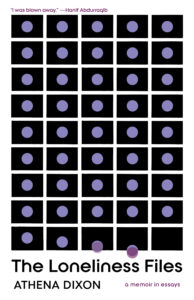
What is it Really Like Inside a Sensory Deprivation Tank?
"I am withholding the weight of my body. I am trying to forget the pressure of being."
The Groupon advertisement said these sensory-deprivation sessions relax the mind. They start by placing you at square one—stripped all the way down to your skin. A session starts with a shower in which the dirt and grime of the world is scrubbed and shampooed away. Next you step into the tank. It’s warmed to the surface temperature of human skin and has about one thousand pounds of Epsom salt dissolved into 220 gallons of clean water. The pods are nine times saltier than the ocean and everybody floats. When you’ve settled, now acclimated to the soft neon glow and atmospheric music inside the pod, press the button to turn off the lights. Stop the music. Close the cover. Float.
I try imagining I am drifting in the middle of the Dead Sea, under a starless sky, without the means to stop myself from floating away from the shore. When I stretch my arms, widely enough to pull the muscles between my shoulder blades, I feel nothing. The sensory deprivation tank doesn’t close in around me. It gets bigger and bigger until I am not sure where the water ends. I keep wiggling my fingers while thinking eventually they will touch something, anything, that will pull me back from the edge of panic. There is nothing to see in the blackness, no place to hold on to. There is only me trying to get free.
The actual Dead Sea is dying—falling into a series of sink-holes and evaporating into nothingness. Environmentalists watch for levels that indicate if soon the sea may be no more. The sinkholes have started to swallow buildings, fields, and roads and could easily swallow a human. The holes can suck a person into the lowest land point on earth, dropping them into abyss until maybe one day the salted shell of their bones finds its way back to the surface. A trolley, which transports tourists closer to the touch of water, has to extend its tracks as each year goes by because everything is receding. This will put more and more distance between human and sea until the buildings are just glimmers on the horizon. This extension adds to the great mystery of the disappearing sea because the connection between the world and the water seems severed. Solid ground continues to drown in what’s left, but everyone still floats.
There are plans being discussed to fortify the Dead Sea and stabilize it before it is too late—plans to bring it back to life. The hope is that by easing the amount of water diverted by Israel and Jordan the sea can rise once again. It is nearly impossible to comprehend how a sea disappears. It is not an ocean, but it is still bigger than my imagination. Many things have disappeared in our lifetimes, but this seems like too much. We as a species have driven flora, fauna, and ozone from the earth for the sake of our own comfort. But where does a sea go? Will it rain down suddenly from the sky when we least expect it? Will we drown when the weight of it splashes from the heavens? Will it find a home in another sea—raising the levels until even more land disappears? These are the kinds of things that keep me up at night—a sea starting to disconnect from the world and wondering why this matters to me in the center of Philadelphia.
*
In the tank, I mull over the word deprivation. How it ends softly at the purse of my lips and what it means. An act or instance of withholding or taking something away from some-one or something. I am withholding the weight of my body. I have taken away my sight. I am trying to forget the pressure of being. The water holds me aloft. It settles in the dip of my back and around the flare of my hips. I make angels in the ripple of it—slowly up and slowly down until the action of it begins to soothe me. I stop searching for the wall if only for a moment.
These sessions are supposed to allow you to disconnect from your troubles and reset. Like a baby coming into the world. Tabula rasa. Blank slate. A hard reboot. Some reviews laud these capsules of salted water as wombs. Perhaps a method to bring the floater back to long forgotten feelings of tranquility before being pushed out into noise and light. A reset. This is my third birth since 1978. I was premature then, and in the too still quiet of the tank I am thinking I wish for this gestation to be truncated too. I shimmy in the salty water, lapping the liquid over my naked skin and against the enclosure like a trapped fish.
I try to relax and expand my limbs until I’m splayed and nude in the tank. It doesn’t help. This darkness is odd. I can still see beyond it, and it feels like I am tumbling toward the unknown. It feels as if in the endless black of it, there are things waiting. Maybe this is too much for me to handle. During my first float, the pod’s soft neon glow helped me ease the descent into deprivation. It was smaller, more intimate. I was able to bump against the side that time. A foot, a shoulder, or my head, depending on how my body had twisted in the water. It was a semidetachment. Simply a pause before the world came back in. Today, the pod is nearly as large as the room in which it sits. Five and a half feet wide. Nine feet tall. Six and a half feet long. Being in this pod is like I am lost in the universe with little chance to make it back to something solid beneath me.
In the tank, I mull over the word deprivation. How it ends softly at the purse of my lips and what it means.
The more I concentrate on the darkness in the floatation tank around me, the more it seems psychedelic. Like a blacklight poster, matte velvet beneath fingers, full of orange, green, yellow, and blue. The Ganzfeld effect says as you take away senses, the others are heightened and hallucinations can occur—like a kaleidoscope you can’t look away from. The brain tries to fill in the gaps and creates neural noise that can lead to altered states of consciousness. This makes sense because in the tank all is black and my brain is forcing me to see what is not there. Reality is getting further away—shimmering on the horizon of consciousness and sucking me deeper into an abyss. Just as the Dead Sea swallows the land and then the land swallows what’s left, I’ve become ungrounded. I’m starting to believe the mirage.
The tank’s darkness swirls and builds when I try to push it back into the familiar inkiness that lines my bedroom each night. This isn’t much different. It is heavy in my mind, and I can’t escape it no matter what comfort I give myself in know-ing I can end this at any time. I simply need to sit up and plant myself to the bottom of the tank ten inches down, and this is all over. I stretch again, needing to touch the wall to ground myself, but the tank feels like it has exploded away from reality, and no matter how hard I try I can’t skim my fingers across anything solid. Even my skin doesn’t feel real. It’s too slick, and each touch slides off my body like I’m waterproof.
The heartbeat in my ears is amplified by the plugs keeping the water out. The whoosh lulls me enough for my mind to wander.
I move my consciousness to Atlanta and the blue dark of the Georgia Aquarium. I remember the gentle wave of jellyfish and how I failed at convincing myself to stroke the rays break-ing the surface of the touch pool. I could only imagine the blur of the animal rising out of the water and puncturing the soft spot at the crux of my shoulder and neck. How the water would stain pink until then it was red. This is irrationality talking, sloshing around in my brain because even sensory deprivation cannot shut it down.
Perhaps what is waiting on the other side of the blackness is actual life—a life that requires me to be present and not in the gauzy moments of my social media or the brightness of a phone. This life would force me to hold fast to the small occurrences. To not tweet or post about them but to rather hold on to a secret joy. To know that all is not up for consumption. Some things are just meant to be lived.
In the tank, I long for the glowing comfort of my phone and the smooth ache of my thumb muscle stretching to tap the screen. There is so much fear. The terror of missing out. Feast or famine and lost opportunities. My mind, still fight-ing this reset, knows the screen flickers with notifications. I’ve yet to figure out how to cull my need for instant response and easy access. The notifications appear. The notifications demand my attention. I fall in line. My phone is just outside the tank, placed atop my neatly folded clothes. It is nearly impossible to stop myself from using this need for my phone as an excuse to cut this float short. I get this anxious feeling in the base of my spine, and it slinks its way up my body until it’s settled so deeply in my brain the choice seems already made for me.
The bartender at my hotel the weekend I visited the aquarium called me an outlier. He watched me scribble notes into a hardback journal spread open like a broken bird on the bar top. I looked up at him, then stuffed another blue crab–deviled egg into my mouth and asked him what he meant. He said, “Most people come to the bar and tap away at their phones, but here you are writing in pen and ink on actual paper. You’re an outlier.” I am a liar. One whose phone was simply tucked into her pocket while she pretended to be deep and mysterious in a new city.
But when the phone is not in my hand, I feel unmoored. It’s kind of like the Dead Sea being brilliant blue and beautiful to the eye. But it’s not really a sea. It is a lake under a grand illusion. Like me pretending that everything outside the purview of the camera lens isn’t falling apart. In the tank, the disconnect from these connections, and my dependency on the escape they provide, almost weighs me down. I need to keep floating. I need to get above the surface. How many minutes have passed now? Maybe the wrinkles in the pads of my fingers will tell me and I can count down to when I can push back into the artificial light of the float parlor and the comforting glow of a screen. My fingers tell me nothing. The ache in my thumb still hums. I try to pull my mind back to something weightless. Something beyond intrusive thoughts. Something beyond the screen I cannot see.
I try stretching my arms again, hoping this time the gentle undulation of the water beneath me has pushed me closer to a wall, but it hasn’t. There is panic starting to settle into my heart, and I try to remember there is no one here but me. There is nothing but water and thought and quiet. There lies the fear. My phone makes it easy to forget what I am afraid of. Dying alone. Being a failure. Not leaving a legacy. If I can stay connected, I can perhaps have all these things. When I sync my breathing to the lap of the water, my heart finally settles. Two beats, then a wave. Two beats, then a wave until before I know it ninety minutes are over and the room comes to life in a gentle rise of music. I think the disconnection of consciousness from my body has failed, but I will try again and hope the next time I am successful.
I scramble to emerge from the tank before it begins to filter the traces of me from the water. Before it removes the bits of me left behind until everything is once again blank. When I step back into the light, I check my notifications nude—ignoring the film of drying salt on my skin that turns me ghostly white. I am a specter trying to return to flesh, and the ground is now solid beneath my feet.
_______________________

Excerpted from The Loneliness Files by Athena Dixon. Published with permission from Tin House. Copyright (c) 2023 by Athena Dixon.
Athena Dixon
Athena Dixon is a poet and essayist born and raised in NE Ohio. She is the author of the poetry chapbook No God in This Room and the essay collection The Incredible Shrinking Woman. Her work also appears in The Breakbeat Poets Vol. 2: Black Girl Magic as well as GAY Magazine, Grub Street, Narratively, and Shenandoah among others. Athena is a recipient of a residency from Tin House and a fellowship from the Martha’s Vineyard Institute of Creative Writing. She resides in Philadelphia. Learn more at www.athenadixon.com.



















